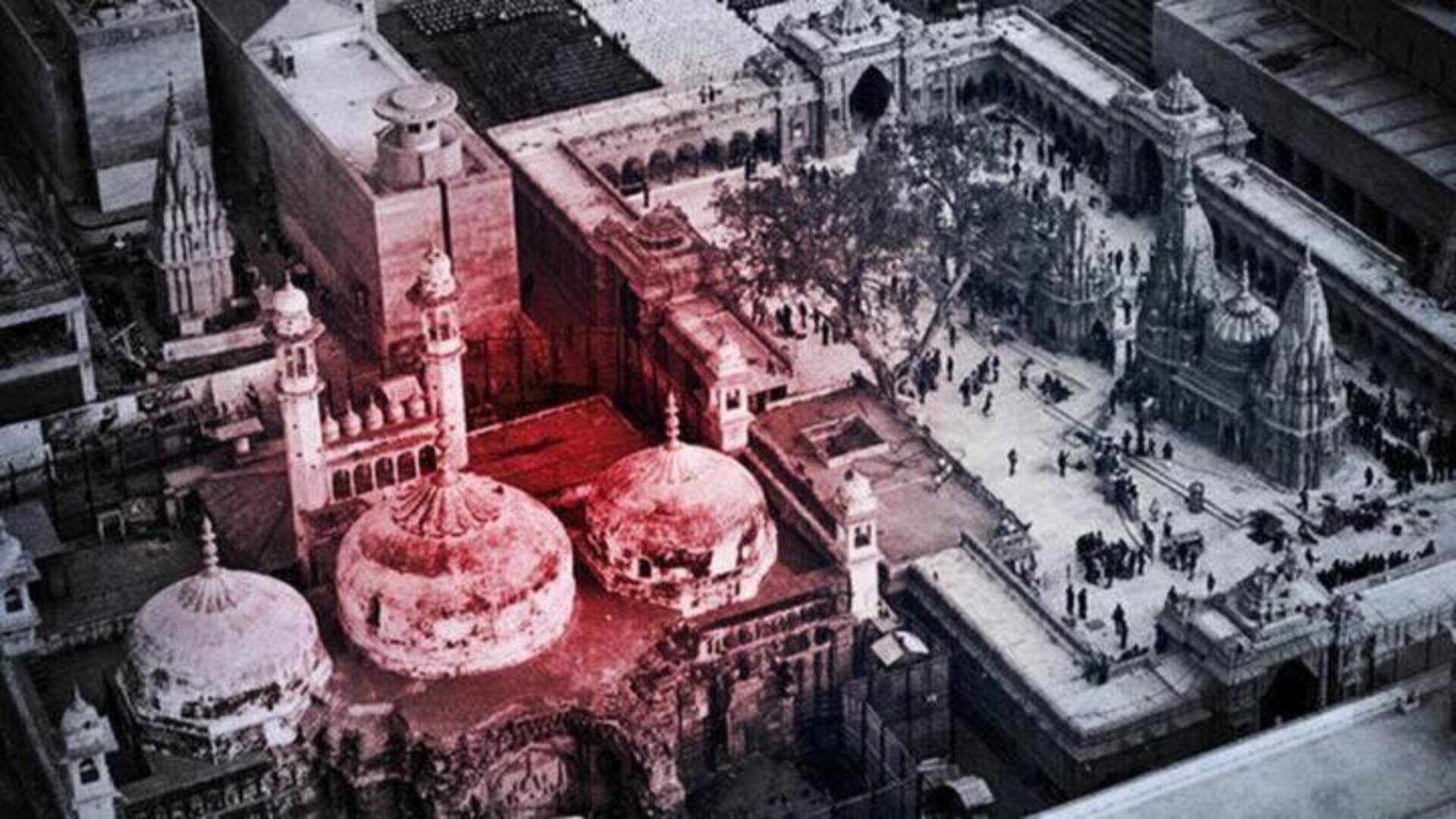
SC to hear plea against temple restoration at Gyanvapi site
What's the story
The Supreme Court on Friday agreed to hear the Gyanvapi Mosque committee's appeal against an Allahabad High Court ruling on the validity of lawsuits for the "restoration" of a temple.
The bench, which includes Chief Justice DY Chandrachud and Justices JB Pardiwala and Manoj Misra, stated, "We will tag this with the main case."
The court had earlier rejected the Muslim side's petitions, which questioned the civil suit's validity, saying that a suit seeking the temple's restoration is valid.
Context
Why does this story matter?
Right-wing Hindu outfits assert that several mosques, including the Gyanvapi Mosque, were built by Muslim invaders by demolishing Hindu temples.
After its formation, the Bharatiya Janata Party (BJP) fomented the matter during the 1980s and 1990s, highlighting it as a reclamation project for Hindus.
However, some Hindu priests allegedly rejected those claims by right-wing organizations—especially over the Gyanvapi dispute—blaming them for inciting communal tensions.
Demands for the restoration of a Hindu temple have intensified in recent years.
Civil suit
Allahabad HC on religious character of disputed place
During its earlier judgment, the HC said that only the court can determine the "religious character" of a disputed location.
The lawsuit seeks to restore a temple at the site where the Gyanvapi Mosque now stands.
The Hindu side claims that the mosque was built on the remains of a temple, making it an essential part of the religious structure.
The Anjuman Intezamia Masjid Committee, which manages the mosque, and other parties had argued against the suit's validity.
Constitutional violations
Places of Worship Act and Allahabad HC's decision
The Muslim side argued that the Places of Worship (Special Provisions) Act, 1991, barred the suit.
This Act prevents changes to the religious character of sacred sites as they were on India's Independence Day, with an exception for the Ram Janmabhoomi-Babri Masjid site.
However, the high court ruled that the district court's suit is not barred by this Act, which prohibits "conversion" of a place's "religious character" from what existed on August 15, 1947.
In February
HC allows Hindu prayers to continue inside mosque cellar
On February 26, the Allahabad HC refused to stay the Varanasi District Court's decision to allow Hindu prayers in the cellar of the Gyanvapi Mosque.
The appeal was filed by the Anjuman Intezamia Masjid Committee after the Hindu side conducted a puja in the mosque's southern cellar—"Vyas Ka Tehkhana"—earlier this month.
To recall, the high court reserved its order for the plea on February 15.
Cellar dispute
Ownership dispute over cellar in district court
The mosque complex has four "tehkhanas" in the basement, and the Vyas family claims possession of one of them.
Somnath Vyas, a member of the family, prayed in the cellar before its sealing in 1993, as per one Shailendra Pathak's petition.
Pathak, a family member, argued in the district court that their hereditary priest status entitles them to access and worship within the structure.
The mosque committee's counsel has, however, refuted the claims of Vyas family's ownership of the cellar.